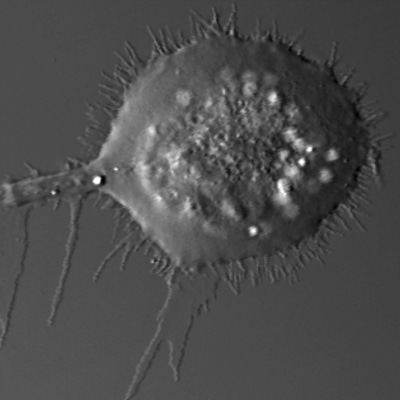
Cancer metastasis, or the spread of cancer throughout the body, is an important area of ongoing research. Cancers that have spread are associated with poorer outcomes.
Cancer cells metastasize by breaking away from a main tumor and traveling to another location. These cells can be classified as either 'leader cells' or 'follower cells'. Like their names suggest, leader cells lead the pack and appear to recruit and guide follower cells. Leader and follower cells work together to migrate away from the main tumor.
Given the potential importance of leader and follower cells in cancer treatment and prognosis, scientists have been researching ways to better identify and target these cancer cells. Previously, a study showed that leader cells rely on different metabolic pathways for energy, compared to follower cells. This difference opened up potential ways to target leader and follower cells. More recently, a study identified a cluster of mutations on chromosome 16 in non-small cell lung carcinoma (NSCLC) cells. This cluster of mutations was found to be specific for leader cells. Using information from patients with high-risk types of NSCLC (NSCLCs that are more more likely to progress and recur) the scientists found that having high-risk NSCLC and at least one mutation within this cluster was linked to worse survival outcomes.
The identification of this "signature" in leader cells involved in NSCLC is the first of its kind and opens up possibility of using it to predict NSCLC progression and recurrence.
National Cancer Institute
Univ. of Pittsburgh Cancer Center
https://visualsonline.cancer.gov/details.cfm?imageid=10604
